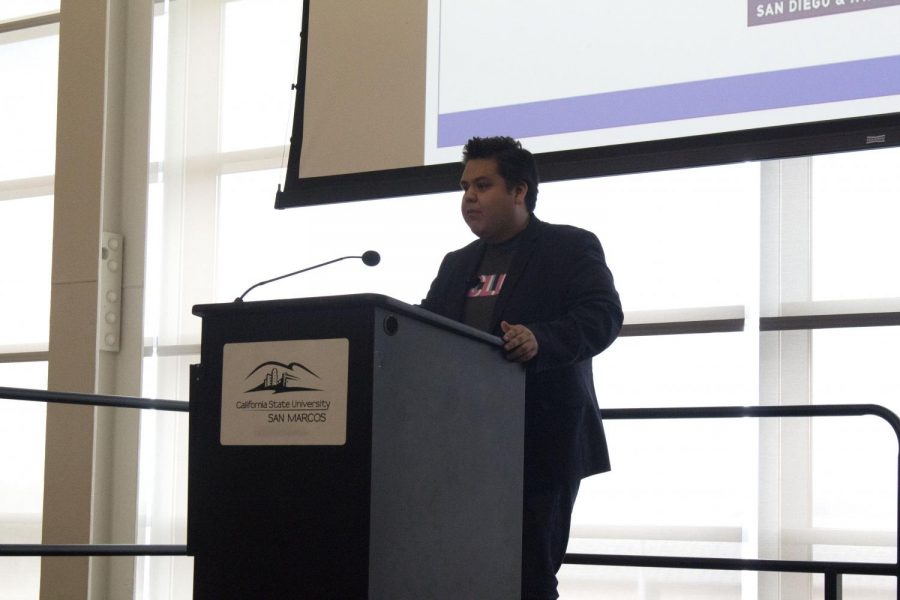Students learn about immigration rights
Senior Immigrants Rights Policy Strategist speaks to the audience about DACA.
October 12, 2017
The rights of an undocumented person could be violated without them knowing.
American Civil Liberties Union (ACLU) is a nonprofit and nonpartisan organization that protect civil rights. The San Diego ACLU has been advocating since 1993.
Two representatives of ACLU, Community Organizer Cassie Purdy and Senior Immigrant Rights Policy Strategist Roberto Alcantar spoke in the USU Ballroom on Oct. 3 for a DACA Information Session hosted by the Sociology Club and Alpha Kappa Delta (AKD).
There are four different types of law enforcement to recognize. The San Diego Police Department, San Diego County Sheriff, Immigration and Customs Enforcement (ICE) and U.S. Border Patrol.
Purdy recommends knowing the difference between an ICE administrative warrant (form 1-200, 1-205) and a judicial warrant. An ICE administrative warrant is a document signed by an ICE agent, not by a judge. A judicial warrant an official court document signed by a judge.
ICE could show up at door and show an administrative warrant. People do not always know the difference and will open the door for them. The ICE administrative warrant does not give them the right to enter a private home without consent.
If ICE knocks at a private home, do not open the door. Opening the door is like giving them consent to enter. Ask for a judicial warrant. They can show the warrant through a window or slide it under the door.
Border Patrol can stop someone and ask questions if they have suspicions. If stopped and the officer asks questions, say the truth. Do say the true full name and do not give false documents. The detainee has the right to remain silent. He or she can say “I would like to remain silent”.
In the situation, stay calm, do not argue with the officer, keep hands where the officer can see them and do not resist. Anything the detainee says or do could be used against them.
If arrested, the detainee has the right to speak to an attorney. Officers may ask about the location of birth of the detainee and how he or she entered the country. The answers to those questions could be used against them for deportation. Do not sign anything before speaking with a lawyer because the detainee could be possibly signing their voluntary leave.
Planning ahead is recommended said, Purdy. Carry a card or memorize the phone number of an attorney. Make a plan with a family member, friend or neighbor of trust to take care of dependents. Those of trust should know detailed plans and attorney phone number.
For more information and tips visit https://www.aclusandiego.org/resources/ .






